Le Grand Sud, the southernmost region of Madagascar, made up of the Androy, Anosy, and Atsimo-Andrefana regions, is an incredibly complex mosaic of hardship and hardworking people, vast potential but lagging development to leverage that potential. Tying together this disparate picture of the region’s future is a spirit of determination. Determination to see the region emerge from recurrent famine, determination to improve quality of life, determination to educate future generations and break out of the cycle of poverty and hunger once and for all.
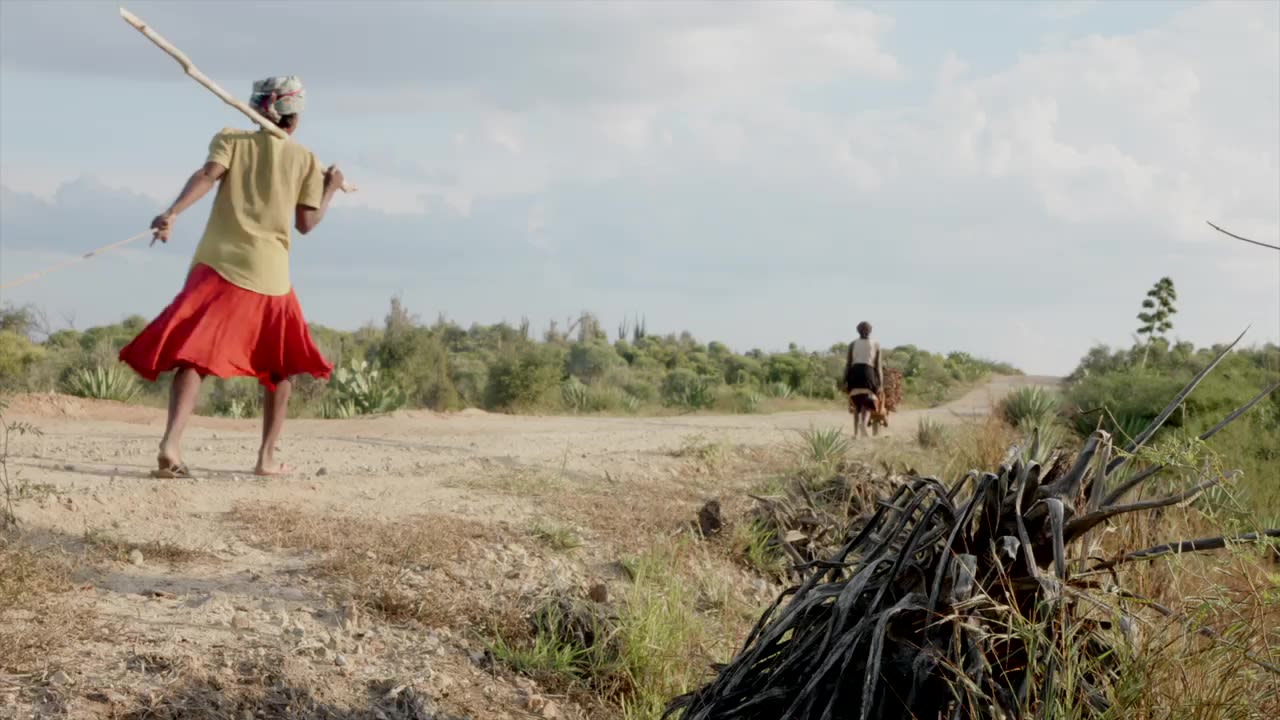
Le Grand Sud, the southernmost region of Madagascar, made up of the Androy, Anosy, and Atsimo-Andrefana regions, is an incredibly complex mosaic of hardship and hardworking people, vast potential but lagging development to leverage that potential. Tying together this disparate picture of the region’s future is a spirit of determination. Determination to see the region emerge from recurrent famine, determination to improve quality of life, determination to educate future generations and break out of the cycle of poverty and hunger once and for all.
The World Bank’s fund for the poorest, the International Development Association or IDA, is on a mission to #ENDPOVERTY in Southern Madagascar, once and for all. Take a journey with us to see that determination and how we are working to enable this vision to come to fruition.
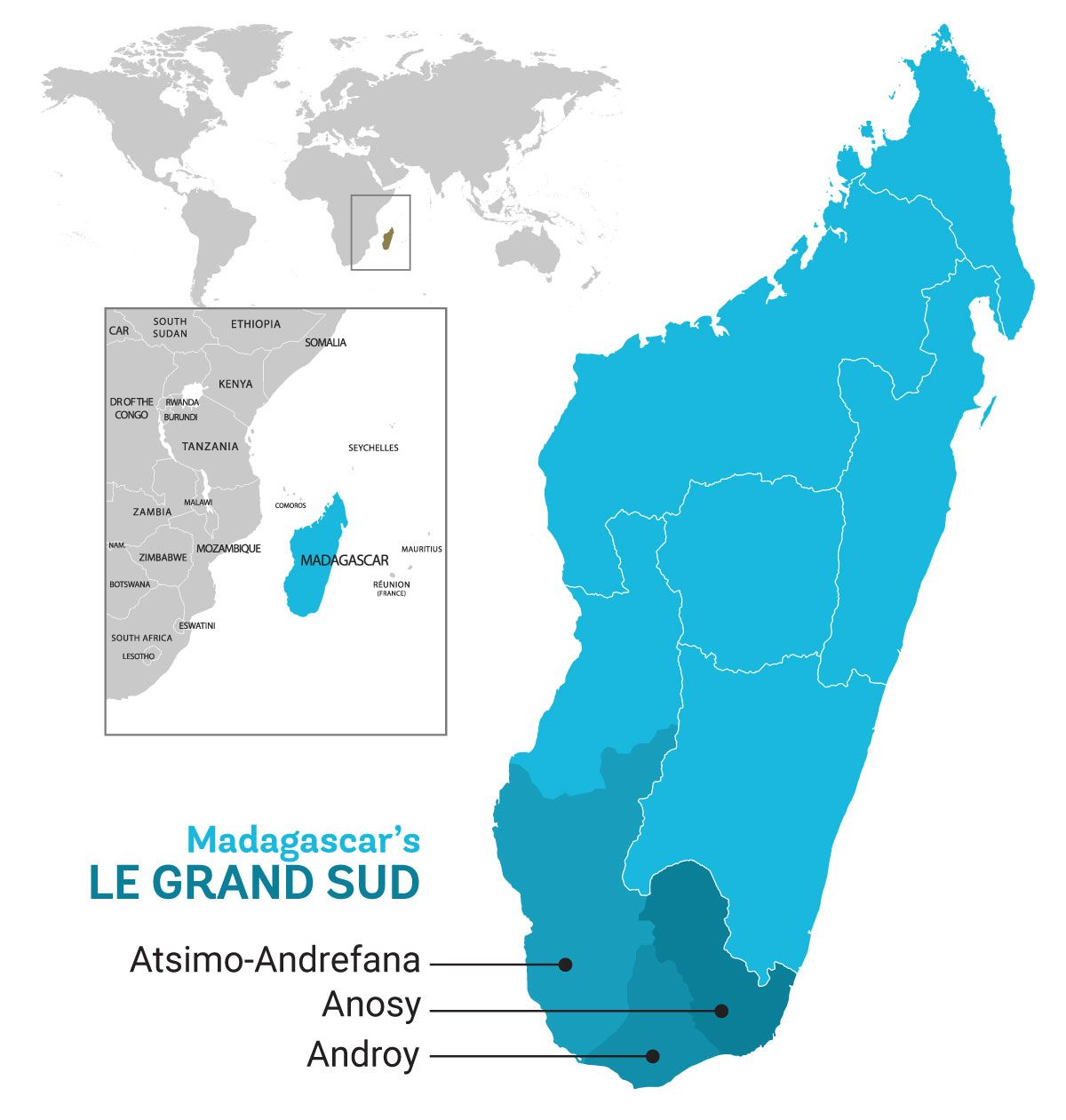
Famine
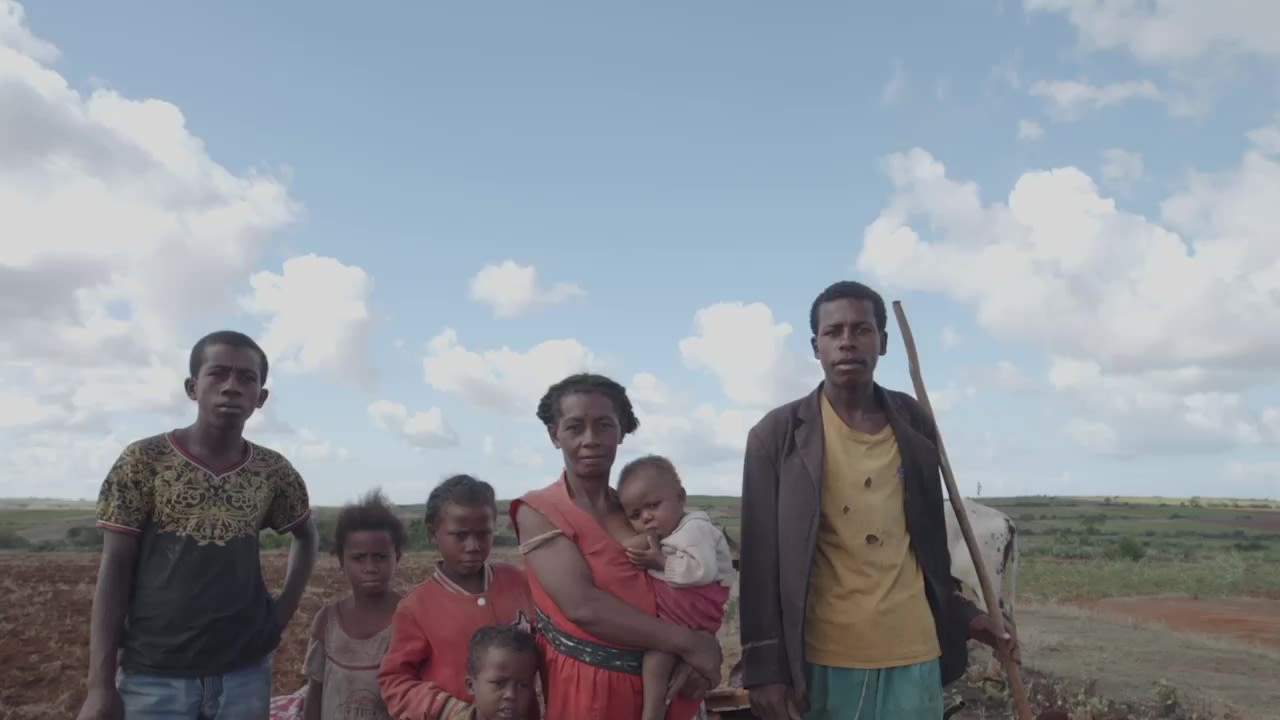
Kéré. Famine. It lurks around every village in the southernmost region of Madagascar. Even when the rains of violent cyclones have temporarily drenched the land, kéré stalks households with painful memories of what and who was lost in recent droughts, and what can strike again in a matter of a few short months.
Thirty-three-year-old Volatsarasoa, from the village of Malangy, in the outskirts of Ambovombe, vividly remembers the last time kéré paid her village a visit. It almost broke her.
“I'm going to tell you what I endured in 2016. It was very painful what we lived during this year, we suffered so much, it was terrible… Me, my husband, and my children, suffered a lot because there was no food, and we were starving. We barely ate, most of the time just a cup of rice for all of us, and only in the evening."
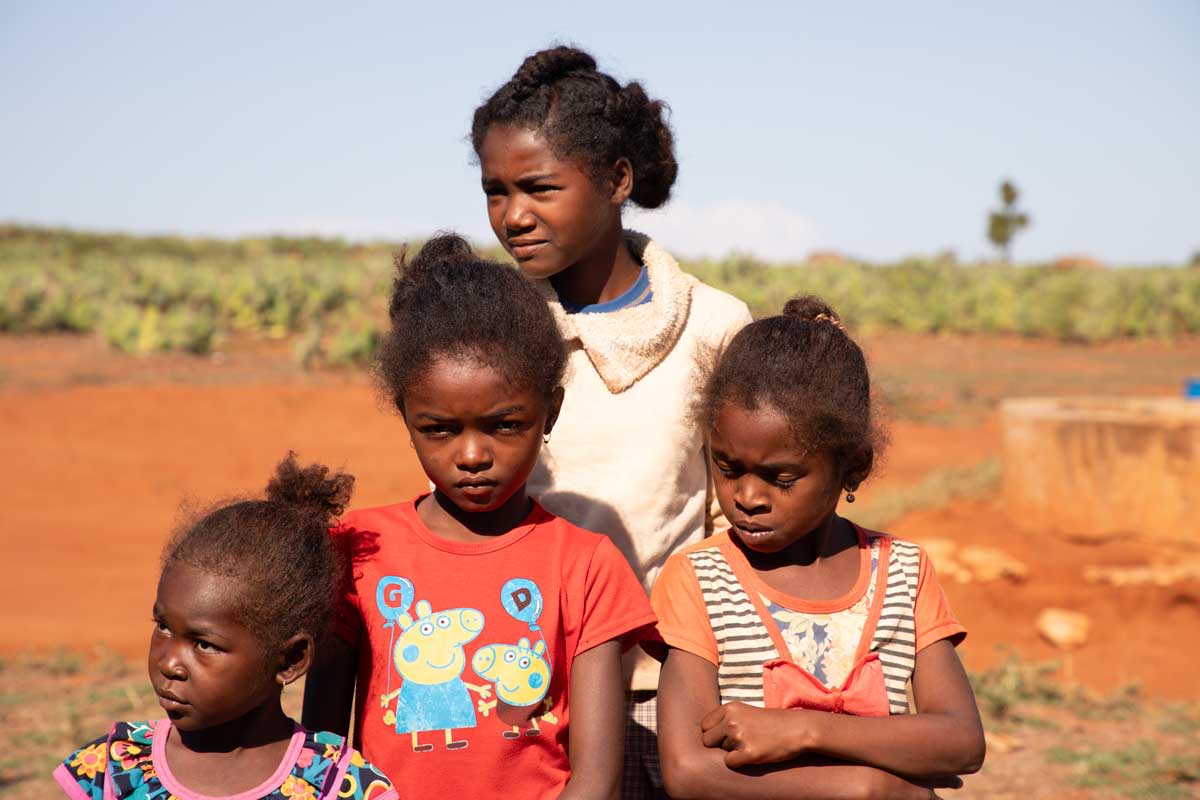
Volatsarasoa’s four daughters survived the drought with their family despite great suffering. They are now all in school and able to eat regular meals thanks to the changes their mother has put in place through the Fiavota program. (Daniella van Leggelo-Padilla/World Bank)
Volatsarasoa’s four daughters survived the drought with their family despite great suffering. They are now all in school and able to eat regular meals thanks to the changes their mother has put in place through the Fiavota program. (Daniella van Leggelo-Padilla/World Bank)
A mother of four girls and one more now on the way, Volatsarasoa doesn’t mince her words.
“I had no solution because even if we went out to get some wood and sell it to buy something to eat, it was barely 500 ariary ($0.10) what we could find for the day. That 500 ariary isn't enough to buy food or even water. I was worried, I panicked.”
Her experience was harrowing and echoes the experiences of so many villagers throughout the region. Pushed to the brink, these communities are on the front lines of record temperatures, extreme water scarcity, sandstorms, poor or non-existent infrastructure, and a stagnant economy leaving them almost no way to make a living.
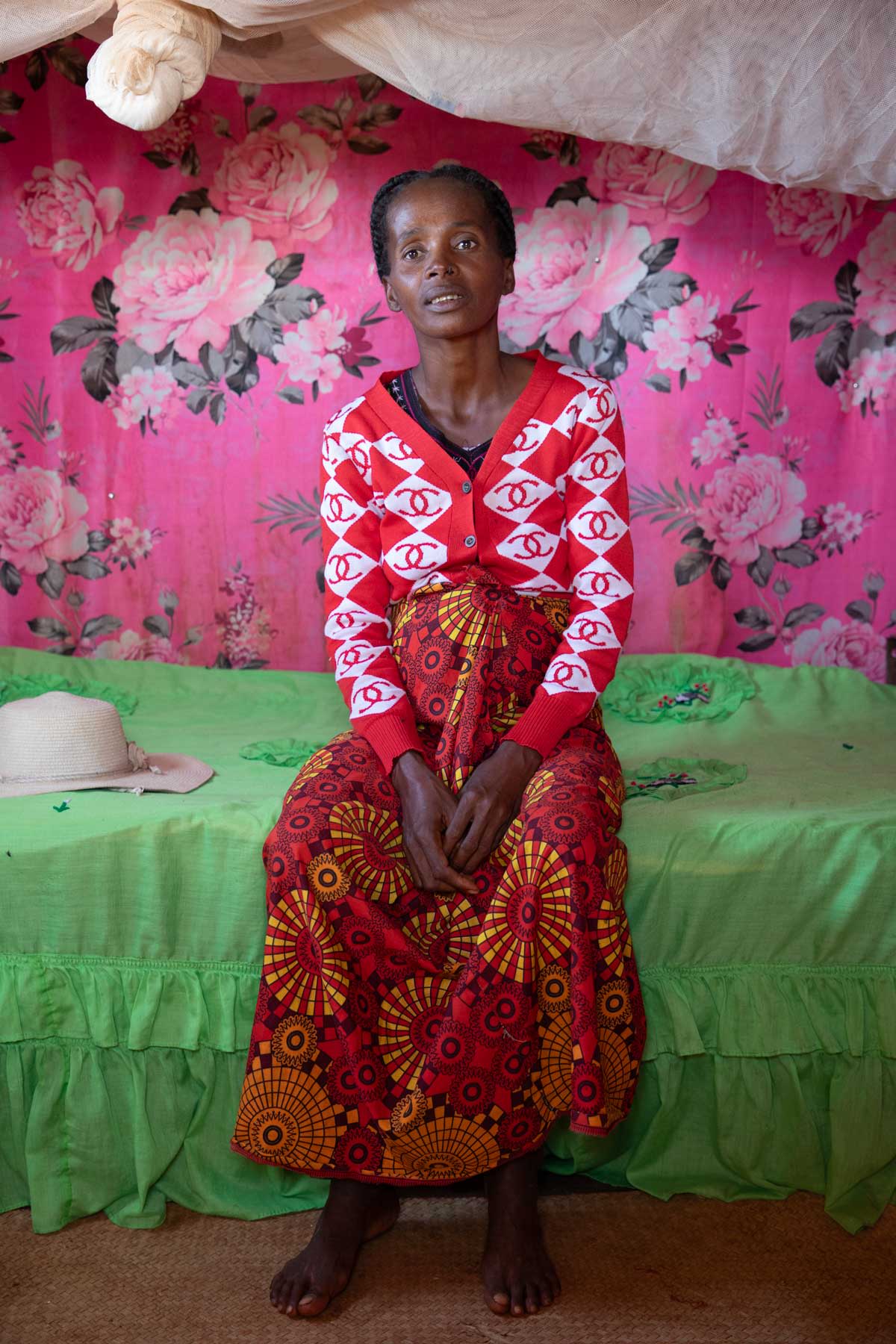
Volatsarasoa, mother leader in Malangy, graduate of the World Bank Fiavota program. (Daniella van Leggelo-Padilla/World Bank)
Volatsarasoa, mother leader in Malangy, graduate of the World Bank Fiavota program. (Daniella van Leggelo-Padilla/World Bank)
Immersive yourself in Volatsarasoa’s story to understand the transformational impact of the Fiavota program.
Immersive yourself in Volatsarasoa’s story to understand the transformational impact of the Fiavota program.
The Fiavota Program
Victims of a confluence of factors and a lack of true sustainable development, populations in the Grand Sud needed more than just handouts, they needed concerted, long-term efforts to transition from emergency aid to long-term resilience.
Financed with an $85 million grant from the World Bank’s International Development Association (IDA), the fund for the poorest countries, this social protection program combines cash transfers, nutrition services, and skills training for beneficiaries.
A recipient of the program’s cash transfers at the height of the 2016 drought, Volatsarasoa is now a graduate of the program, able to sustain her household thanks to the skills and training she received. She learned to manage her money, how to wisely invest, how to rear livestock, how to grow drought-resistant crops and protect them from pests, and how to practice good hygiene, sanitation, and family planning.
Volatsarasoa has taken this beyond her family and is helping others, continuing to enhance her skills and rebuild dignity in the hard-struck community. Under the guidance of the Fiavota Program, she is now an elected “mother-leader”, mentoring a group of 25 women and young girls in the practices she learned, equipping them early with life-saving skills that are improving the living conditions of the entire village. Not only are these women following in her footsteps, but they are collectively saving to invest in community infrastructure, such as wells, that are critical to survival during times of drought.
They also maintain a communal garden, growing a variety of produce to improve nutrition, the surplus of which they sell, saving the money in their community savings structure.
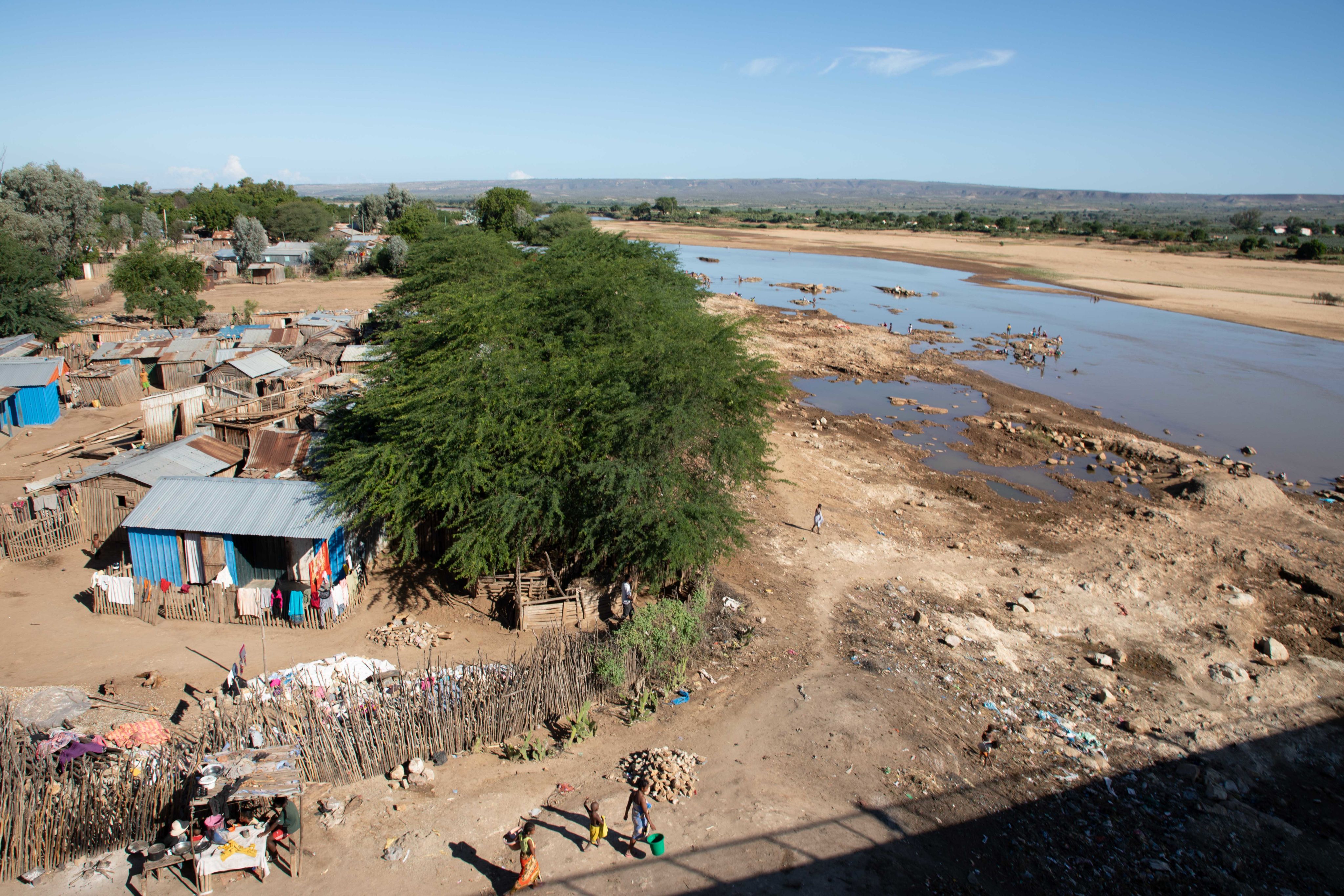
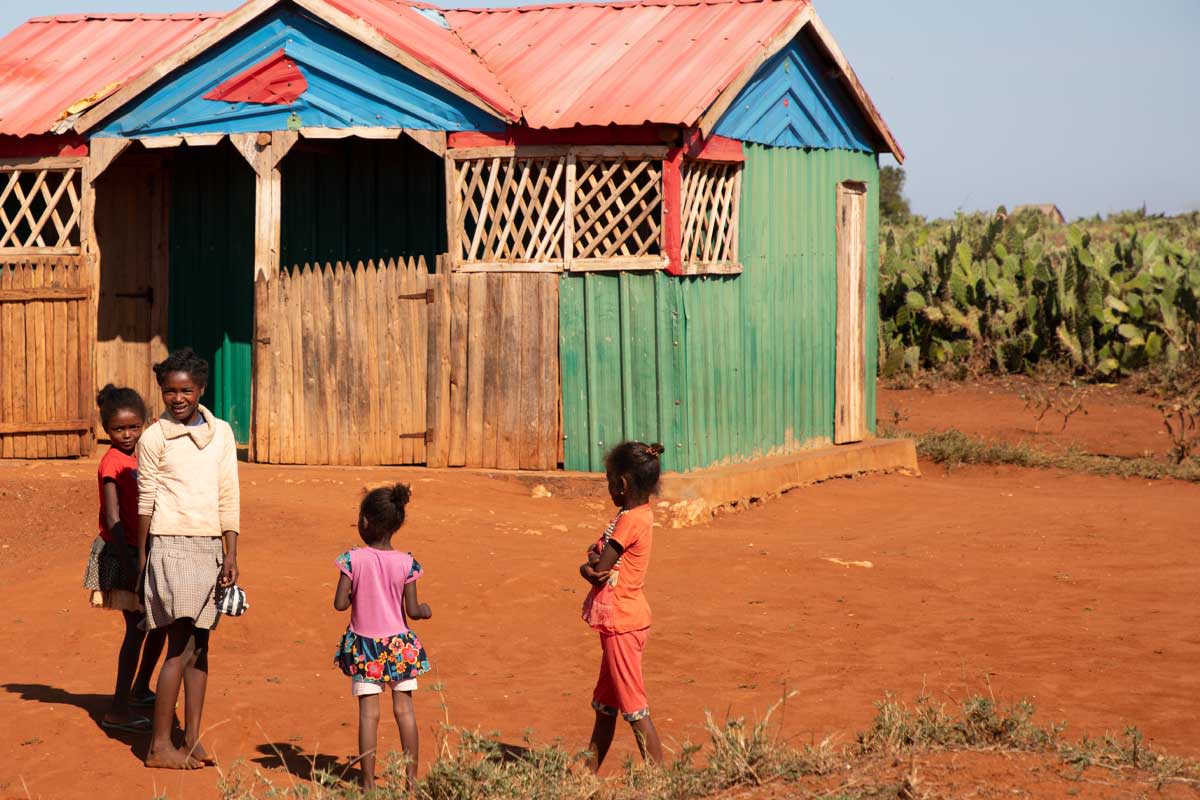
The approach and support of the Fiavota Program is having a ripple effect across villages in this region of Madagascar.
It is slowly but surely reversing a vicious cycle of poverty and destitution and helping communities reestablish themselves, their lives, and their livelihoods. The difference is visible in the proliferation of new, more sturdy houses, wells, schools, livestock paddocks, and thriving crops. It’s also palpable in the voice of people like Volatsarasoa.
"I put my children back in school when I received money from Fiavota. I also bought and raised chickens that I am gradually increasing. We were put out of our misery when we benefited from Fiavota.
Me, my children, and my future generations are saved, thanks to the knowledge I've been able to acquire through this project, which I'm passing on to my children and later to my grandchildren… little tricks to improve living conditions. As an adult and the first beneficiary of this project, I now know a lot of things thanks to the project, and I’ll be passing them to the next generation.”
Breaking the Cycle with Holistic Development
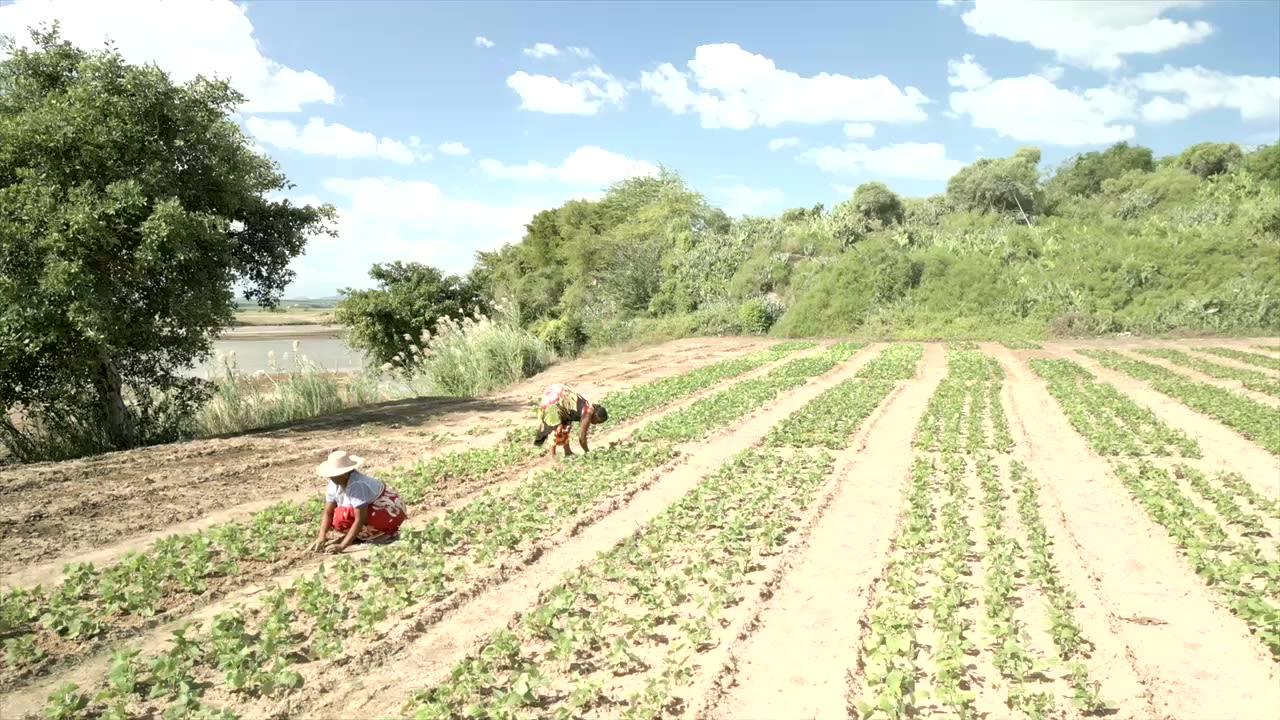
While emergency support such as the cash transfer programs and school feeding initiatives are critical to preventing outright hunger, they cannot substitute for the work that needs to be done to actually break the cycle of reoccurring famine. In the words of former World Bank Country Manager, Marie Chantal Uwanyiligira, “The best way to break this pernicious cycle of poverty and hunger is to take a holistic approach, deploying development support to be a catalyst to sustainably addressing issues related to access to water, adaption to climate change, limited health and education facilities, and poor road quality and safety.”
To advance this holistic approach, the World Bank is working to integrate resilience to climate change into every aspect of development in the region. In the short term, this means immediate support for farmers so they can leverage climate-smart farming techniques to protect their lands from being swallowed by highly destructive “Tiomena” or sandstorms and increase their yield despite harsh conditions.
Bernard Soja, a father of 12 children, started noticing an increase in the Tiomena phenomenon a few years ago. At one point, his crops were engulfed with sand.
“There was a very frequent wind that covered everything in its path, the forests, and started to swallow part of our house. So, I called for help from my family who were staying in town to get us back, because we were starting to get stuck in the sand. They came very quickly in carts, and shortly after two houses had been buried under the sand.”
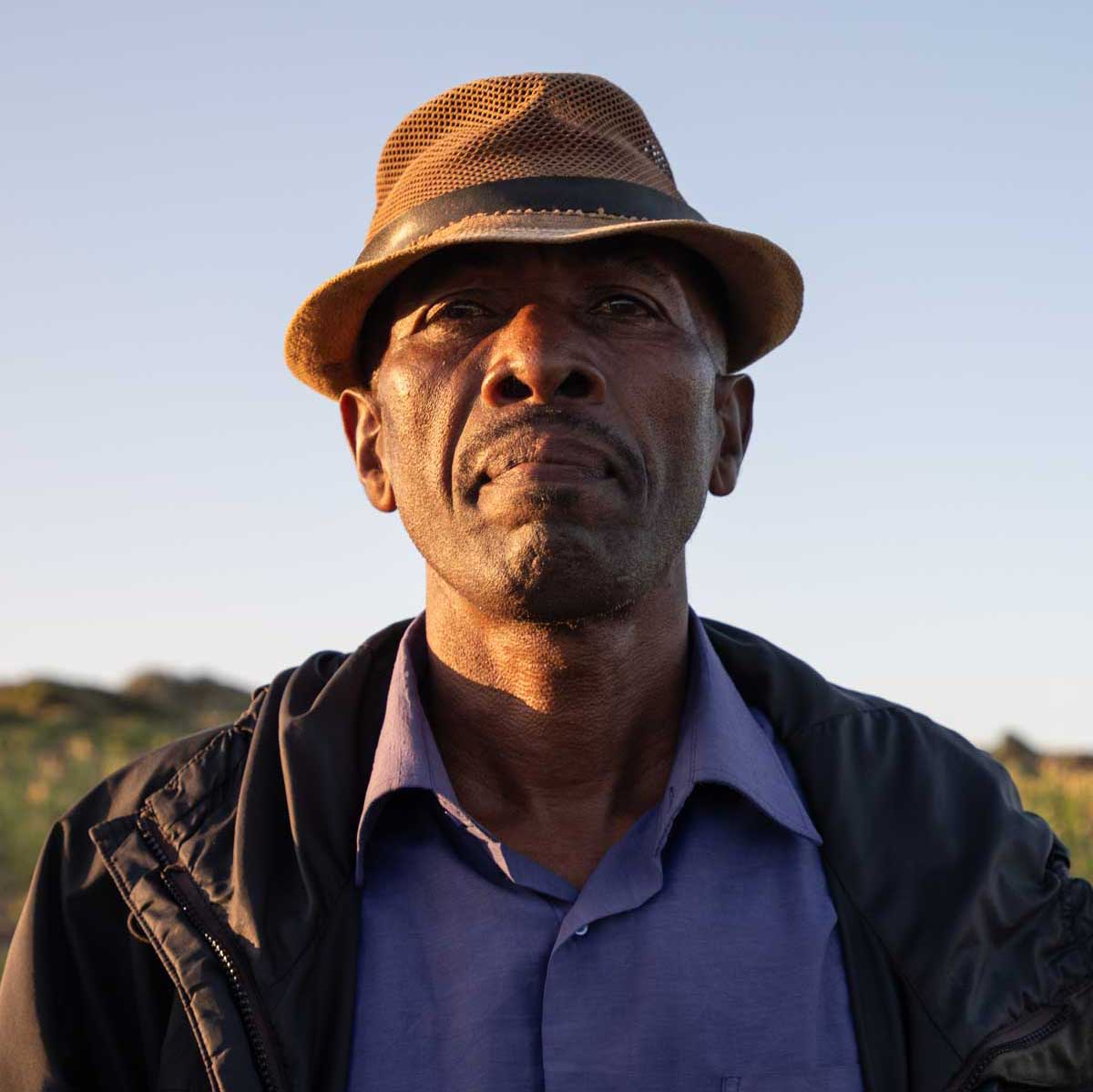
Bernard Soja, is a farmer, fisherman, and bee keeper from Maroalomainty who lost his farm and crops to violent sandstorms that are becoming increasingly more severe and frequent due to climate change. (Daniella van Leggelo-Padilla/World Bank)
Bernard Soja, is a farmer, fisherman, and bee keeper from Maroalomainty who lost his farm and crops to violent sandstorms that are becoming increasingly more severe and frequent due to climate change. (Daniella van Leggelo-Padilla/World Bank)
The Mionjo Project
The World Bank is working with partners in the country as part of the Support for Resilient Livelihoods in the South Project, The Mionjo Project. With implementation by Food and Agriculture Organization (FAO), the project is helping the population use natural methods to sustainably combat such climate-induced phenomena. In partnership with the government, Catholic Relief Service (CRS), Tany Meva Foundation, and the local population, a campaign to plant sisal and succulents in mass was launched to retain the sand and prevent rapid degradation of farmlands. 90% of the region’s population is dependent on subsistence farming so this has been critical to ensuring the continuation of their livelihoods.
For Bernard, he says he is not afraid to come back to his land. “I'm not afraid of many things, but that sand...that's what made me leave this area. When the sand is under control, I can move back in.”
The use of climate-smart and drought-resistant seeds and techniques are changing farming.
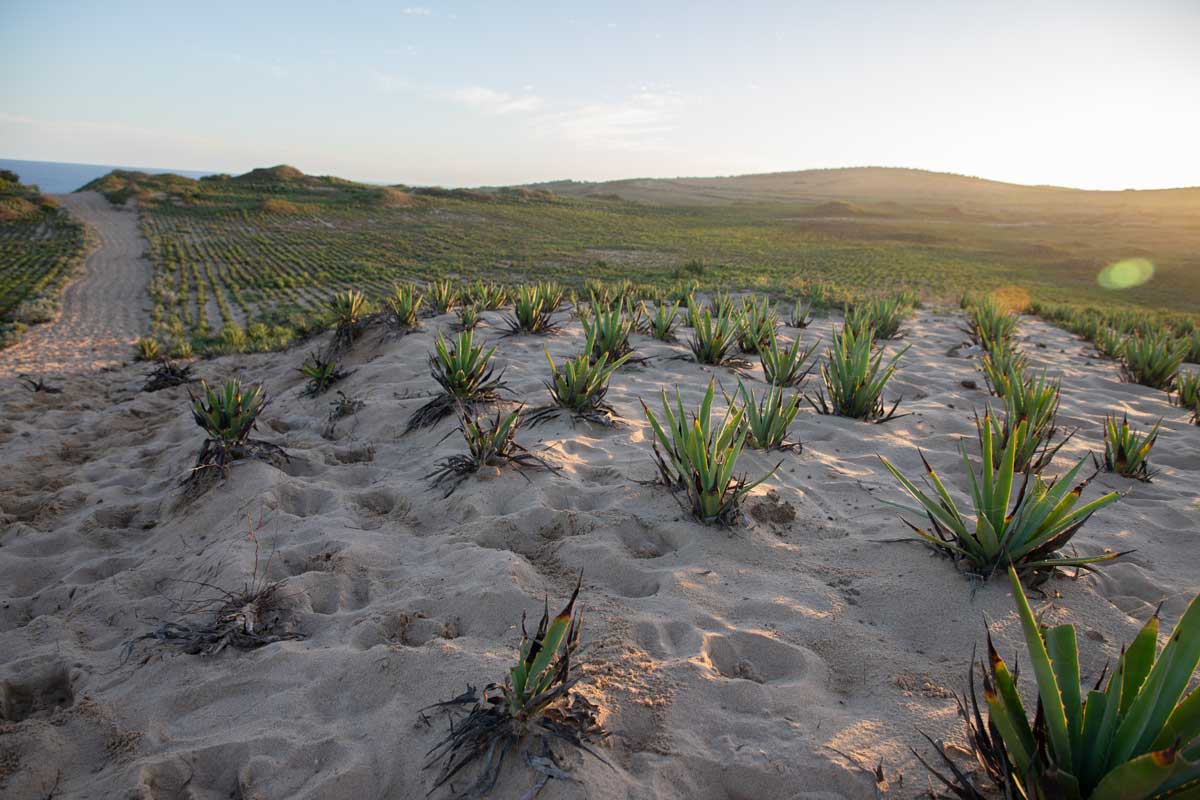
Bertin Mara is a village chief, farmer, and father of four boys. Struck by both the winds of the Tiomena and drought, he was losing hope for his family and his village.
“When the Mionjo Project arrived, it was as if our lives had been blessed by God because afterward the rain fell and we also received seeds. We used those seeds to grow cereals and manioc, both of which grew well. This is my second harvest, and our life has changed.”
Thanks to the project, Bertin and his fellow villagers have learned how to use natural techniques to improve the survival of their crops and improve growing conditions. Combining upward-growing crops with low-growing crops now allows for the former to provide shade for the latter, and for low-growing crops to moisten the soil. When the leaves fall, they naturally become fertilizer for the other crops, and the virtuous cycle continues.
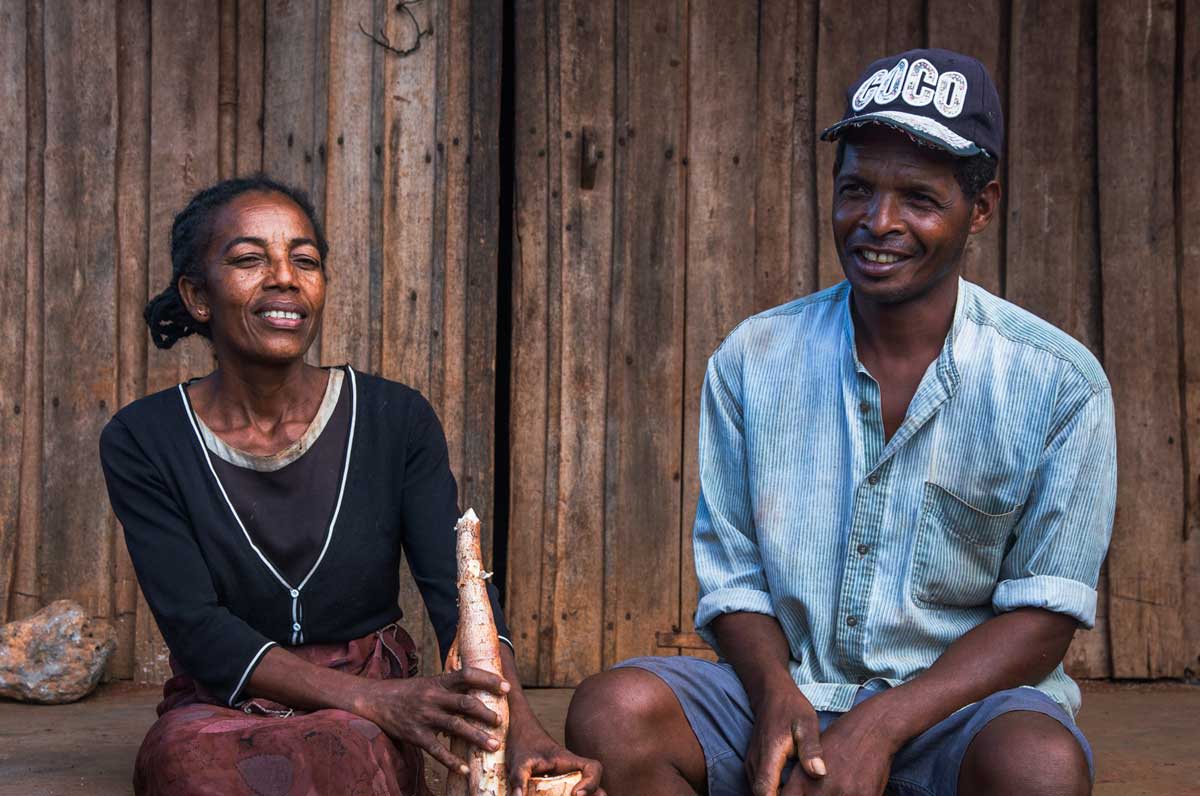
Bertin Mara and his wife with cassava they have recently harvested. Thanks to climate-smart farming techniques and seeds, they are able to grow a variety of drought-resistant crops that help feed themselves and their community year-round. (Tsiky Lalatiana Ranaivoarisoa/World Bank)
Bertin Mara and his wife with cassava they have recently harvested. Thanks to climate-smart farming techniques and seeds, they are able to grow a variety of drought-resistant crops that help feed themselves and their community year-round. (Tsiky Lalatiana Ranaivoarisoa/World Bank)
The interventions of the Mionjo Project have been lifesaving.
In response to a recent drought, the World Bank worked with FAO to deliver two rounds of emergency cash transfers to nearly 600,000 people while an additional 480,000 were provided with fresh water in coordination with UNICEF.
“There's a big change […] in terms of our well-being, now we're better off, we can even reserve [food] stock that we don't touch in anticipation of drought, that we can eat when the drought strikes. Before, we had no stock and sold everything, even if it cost 50 ariary a cup. Now I know better, I have enough to keep in stock, to sell, or to give to our poor families.”
Empowering Communities for Local Results
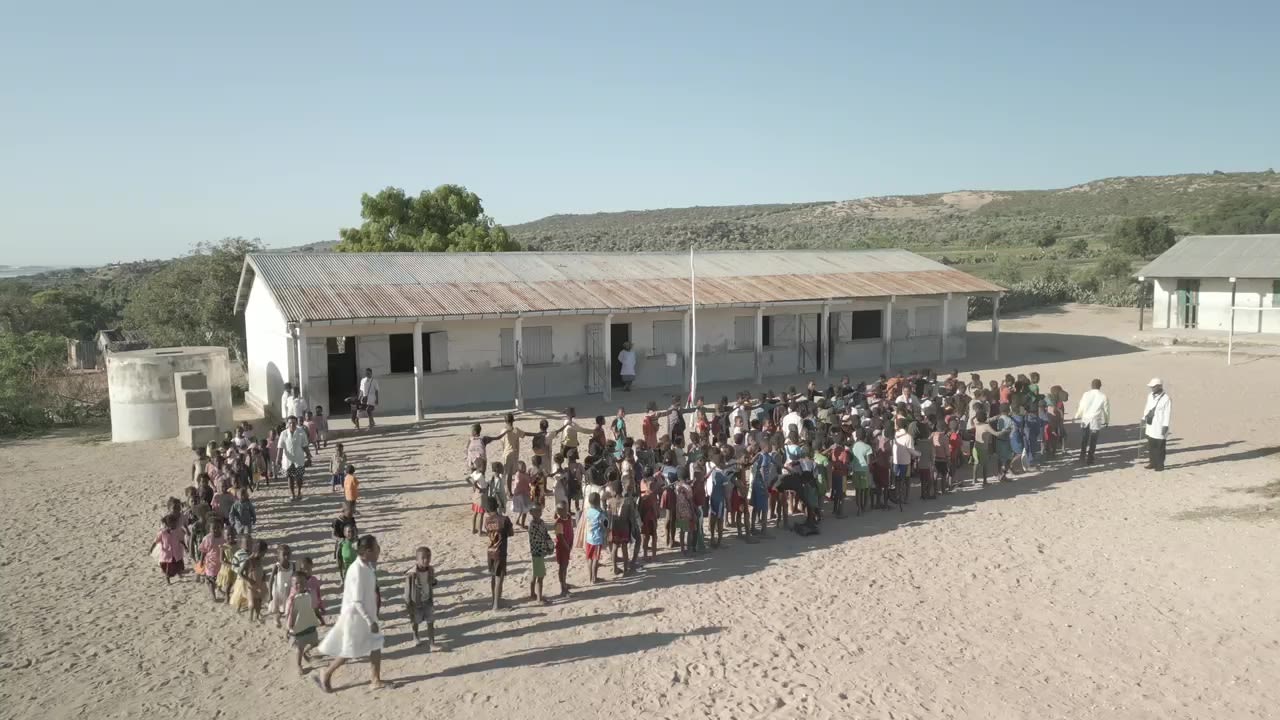
Communities in Madagascar are being empowered to make important decisions about what their priority development needs are. The Mionjo Project is taking a fresh approach to development in the South, integrating communities into the work. For example, in the commune of Manambaro, local consultation structures (SLC) have been established and include representatives from across the community who voluntarily represent different development sectors, according to their expertise. These representatives range from the community’s mobile health worker to the school’s principal – all of whom are in touch with the day-to-day needs of the villages they serve.
Each year the SLC gathers and votes on priority projects for their community, which are then funded by the Mionjo Project, which also provides the commune with training, all the while giving the commune autonomy over the contracting process and the implementation of the development project, through to payment, and monitoring of the work.
“We really feel the difference because we're in charge of all the development projects. What we note when this autonomy is given to us, is that we really experience decentralization and development goes faster because we manage to have control over all the technical and financial aspects, and the work is finished on time and to the required standards. The population also feels responsible for the work, because they know it's really theirs.”
Previously, projects were chosen by leaders or funders. But now, projects are chosen based on the priorities demanded by the population. So far, Manambaro has built a middle school and a health center, both of which have significantly reduced the time and risks that people undertook to reach these vital services, previously over 15 kilometers away.
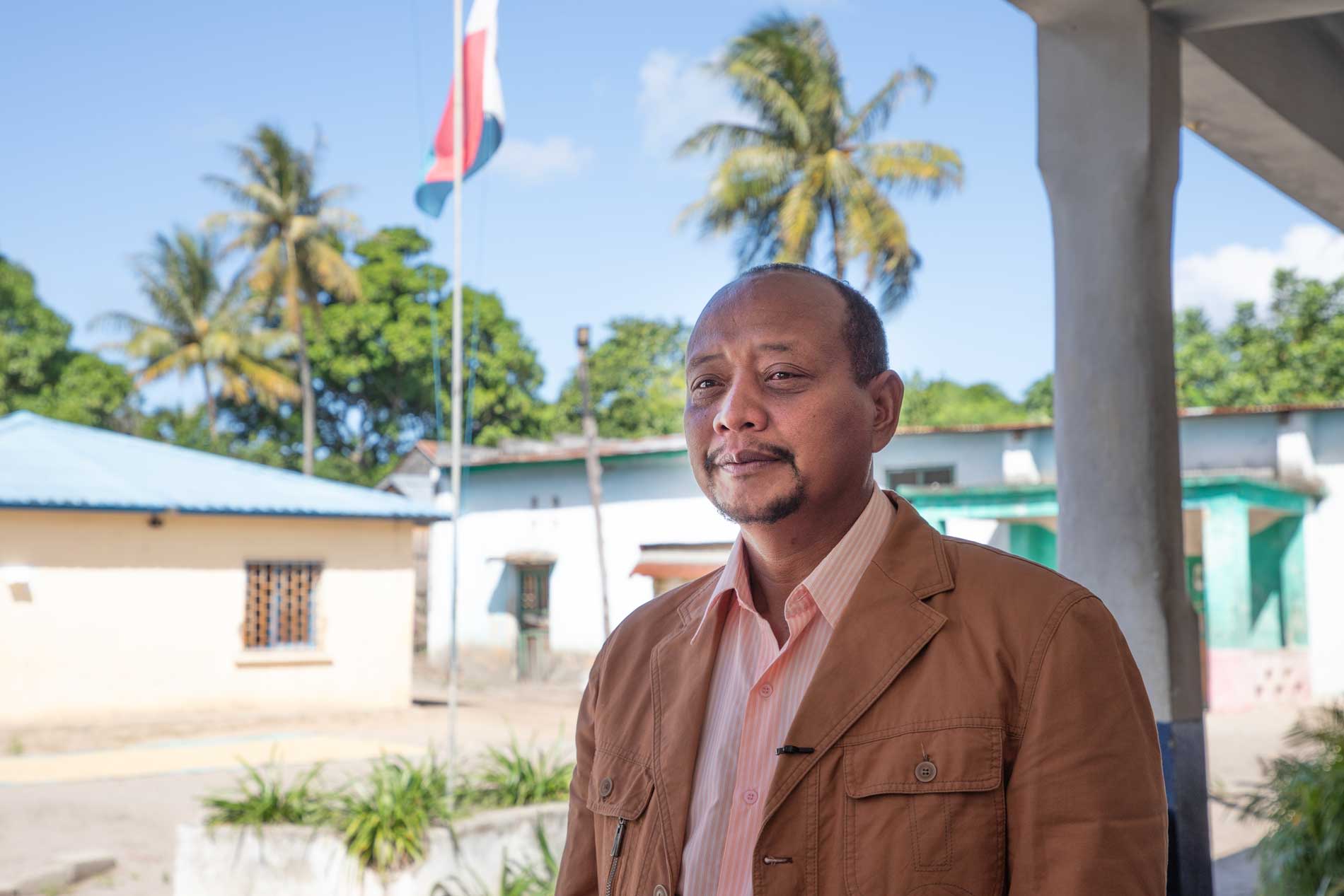
Andriamilanto Razafimahatratra, Mayor of Manambaro. (Daniella van Leggelo-Padilla/World Bank)
Andriamilanto Razafimahatratra, Mayor of Manambaro. (Daniella van Leggelo-Padilla/World Bank)
In this video, follow Christoline, a 7th grader, as she goes through her day at the Ampasipolaka school outside of Ambovombe. She benefits from a school feeding program that is funded by the World Bank in partnership with the World Food Programme.
In this video, follow Christoline, a 7th grader, as she goes through her day at the Ampasipolaka school outside of Ambovombe. She benefits from a school feeding program that is funded by the World Bank in partnership with the World Food Programme.
The Fiavota Program is also about building the skills of citizens within the community, no matter what their age, to weather future shocks and open up more employment opportunities. Adults, mostly women, who missed learning in school, are now participating in adult literacy programs in their villages that are helping them read, write, and perform basic math. The result? They have important information about their health and livelihoods and can start to manage their finances. They are also participating in community savings programs, pooling together larger sums of money to finance important infrastructure (such as wells) but also to buy equipment or supplies to improve their farming or their homes.
Teens are leading the charge to raise awareness about the negative effects of early childhood marriage, a practice that prevents them from reaching their full potential as adults and perpetuates poverty. In Betsimeda, Mitanto Mara had an arranged marriage at 15 to a girl who was 13.
“My father asked her father to marry me. […] I used to go to school, and she didn't want to leave either, but her father forced her to marry me. I also wanted to continue, to go as far as high school, even to go to university, but I had to stop because if I went to school, who was going to feed her? Nobody was going to feed her. So, we dropped out of school. I farmed to feed her.”
Mitanto was connected to the Fiavota Program after he managed to convince his family to break up the marriage. He has become a strong advocate against child marriage, touring villages to speak to youth about the perils of marrying young. With coaching support from the program, he has recruited a female advocate to help persuade both girls and boys to take their future into their own hands, and push for their rights to pursue an education, be consulted, and drive change in their communities.
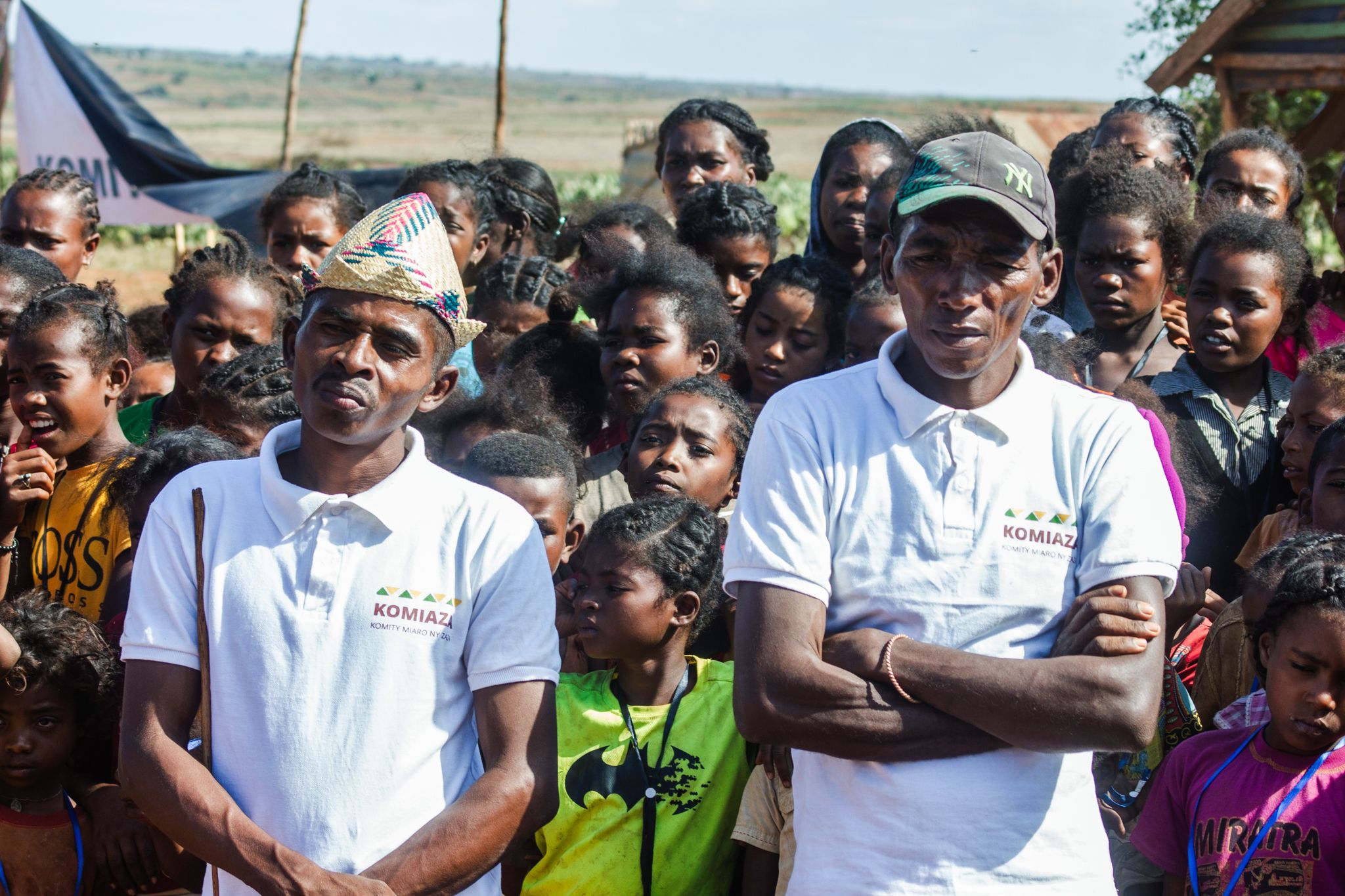
Mitanto Mara (on the left), who extricated himself from an arranged marriage at 15, is now a community advocate against child marriage to enable girls and boys to pursue an education and reach their full potential. (Tsiky Lalatiana Ranaivoarisoa/World Bank)
Mitanto Mara (on the left), who extricated himself from an arranged marriage at 15, is now a community advocate against child marriage to enable girls and boys to pursue an education and reach their full potential. (Tsiky Lalatiana Ranaivoarisoa/World Bank)
Resilience and Long-Term Development
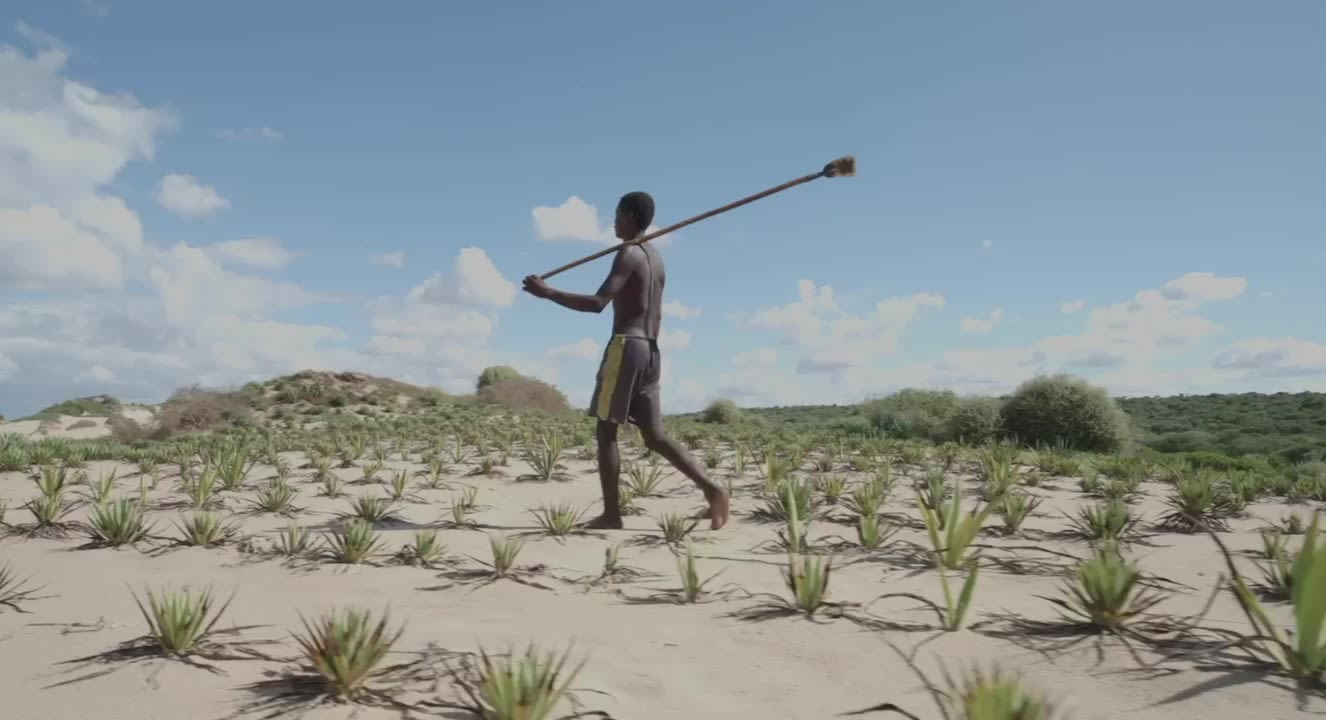
The road to long-term, sustainable development in Southern Madagascar is arduous. Under pressure from compounding climate crises and weak institutions, weak service delivery, and infrastructure, the region requires sustained efforts that simultaneously cushion the most vulnerable from shocks, but also build their resilience and autonomy to be able to graduate from emergency support to longer-term development. The World Bank is at the forefront of this approach, providing financing and technical assistance that is bolstering the population on this road out of poverty.
To create jobs and boost prosperity, the World Bank has been nurturing small and medium enterprises that are critical to creating local jobs at scale. Through the Integrated Growth Poles Project, World Bank financing is enabling companies like Eva Fruits, to expand their production, creating jobs and bringing local communities with them.
Watch this video to learn how the World Bank is supporting small and mediums enterprises such as Eva Fruits and Saveurs Fumees, in Southern Madagascar, to create local employment opportunities at scale.
Watch this video to learn how the World Bank is supporting small and mediums enterprises such as Eva Fruits and Saveurs Fumees, in Southern Madagascar, to create local employment opportunities at scale.
Eva Fruits, a fruit and spices business, works with local cooperatives of farmers around Fort Dauphin to buy their pink peppercorn and chili peppers at fair prices, selling them domestically and abroad. With project support, Eva Fruits is able to train local farmers and provide them with agricultural inputs to grow their cooperatives and increase their incomes. By developing several fruit, nut, or spice campaigns, the idea is to enable these local cooperatives to produce year-round, guaranteeing them income and a steady livelihood.
“We started in this business 22 years ago, and over the years we have grown with the local communities and have a lot more potential to continue growing. In agriculture and rural development here, there is immense potential. But it is important to ensure a transparent business environment and respect the dignity of the communities we work with; they always must have the freedom to choose how they use their land, and who they sell to. The fact that we help them plant orchards or crops does not confer any rights to their goods. When we started, we worked with 64 local farmers, now we work with 3,000.”
Zoarline Miza is among the women who pick, sort, and collect pink peppercorns.
“The pink peppercorn season begins on May 15, so we start picking them in the forest, removing the branches, sorting the green and ripe ones, the rotten ones and then drying them. When they're dry, we put them in the bag. After a week, we harvest a lot, so we bring them in to be weighed, and we get money. With the money we can take care of our household, buy clothes for our children, save for their schooling.”
Businesses such as Eva Fruits, which are locally owned and run, and employ locally, are contributing to the foundations of a virtuous cycle of prosperity that can be a model for more initiatives across the region. Financing their growth has been a staple of World Bank support to the region since 2006, and investments continue as new businesses come on the market. Women-owned or women-run businesses are also taking off, such as that of Saveurs Fumees, a company that buys their fish directly from local fishermen and hires local employees to smoke and package the fish for sale. Replicating and scaling up such businesses will make a difference for individuals, communities, and the country’s growth.
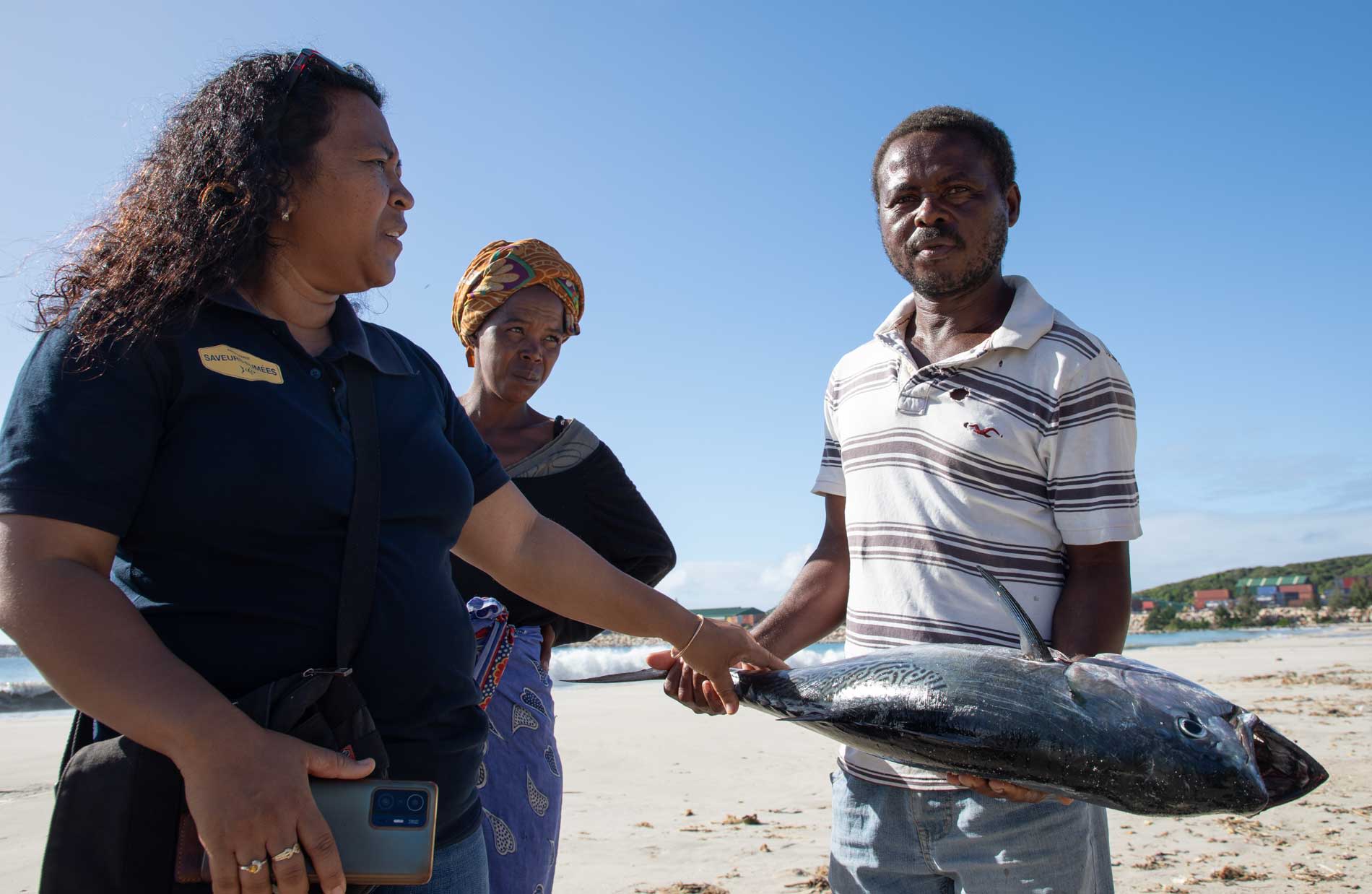
Corinne Ravaroarisoa is the managing partner for Saveurs Fumees, a local business she started with her husband to serve restaurants, hotels, and the residents with fresh and smoked fish and meats. She purchases her fish directly from local fishermen in Fort Dauphin and employs locally to create jobs and build the skills of people in her community. (Daniella van Leggelo-Padilla/World Bank)
Corinne Ravaroarisoa is the managing partner for Saveurs Fumees, a local business she started with her husband to serve restaurants, hotels, and the residents with fresh and smoked fish and meats. She purchases her fish directly from local fishermen in Fort Dauphin and employs locally to create jobs and build the skills of people in her community. (Daniella van Leggelo-Padilla/World Bank)
“Our primary goal as an institution that fights extreme poverty is to help the population of the South of Madagascar, the poorest region of Madagascar and one of the poorest in the world, to have a better life notably with sufficient water for their consumption and agricultural and livestock activities, to help them overcome famine and have access to food when harvests fail or drought strikes. We aim to assist them in producing more and better crops given the challenging climate and to build essential infrastructure like roads, energy, and telecommunications to help create job opportunities for the local population through private sector investment in this resource-rich region,” said Atou Seck, Country Manager for World Bank in Madagascar.
The World Bank is committed to continuing to help the region deal with famine and improve quality of life for citizens, while building up resilience. The key to success is our united focus on holistic development, bringing in the opinions and skills of the local communities to build local, sustainable solutions to development issues, and helping educate future generations to break the cycle of poverty and hunger once and for all.




